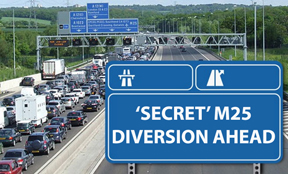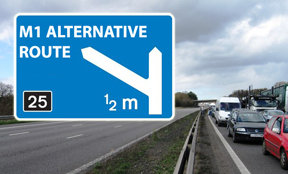
With the government pledging to ban sales of new car powered solely by petrol and diesel by 2035, and banning hybrid cars by the same, many learner drivers and current motorists are asking if they will need to take a dedicated electric car driving test when the time comes.
Here motoring journalist and expert Pete Barden takes a look at what the law currently says and any changes that are planned for both now and in the future as electric cars have overtaken petrol power as buyers’ next planned purchase (with diesel languishing in third), according to research from Autovia, a UKprovider of automotive information.
-
TABLE OF CONTENTS
-
Do I need a driving licence for an EV?
-
Do I need a special licence to drive an EV?
-
Is my automatic licence valid for a n EV?
-
Does my manual licence allow me to drive EVs?
-
Is it worth taking a manual test
-
Is it easier to pass an auto practical exam to drive an EV
-
Can you take your driving test in an EV?
-
Is there a different driving examination or training for EVs?
-
Will the driving test change in the future?
 More
people will be driving electric cars over coming years, but will they need to obtain a special licence
and take a different test?
More
people will be driving electric cars over coming years, but will they need to obtain a special licence
and take a different test?
Do I need a driving licence for an EV?
While some electric bikes below a maximum power output of 250 watts and top speed of no more than 15.5mph do not require a licence, other battery powered vehicles (even electric scooters by law) will require a licence and theory and practical examination.
Do I need a special licence to drive an EV?
Currently, there is no need to obtain a different type of licence to drive an EV in the UK. However, when it comes to looking forward for younger people taking their practical exam, the option of taking an automatic version could make more sense because battery-powered vehicles do not have a manual gearbox. However, there is also the possibility that the manual test will simply be retired - or made an 'add on' category in the not-so-distant future.
Is my automatic licence valid for a n EV?
Yes, the automatic examination will allow drivers to use an electric-powered car. As mentioned above, EVs do not have a gearbox, so no manual experience is required to drive one.
Does my manual licence allow me to drive EVs?
Yes - as is currently the case, having passed the manual practical test allows the holder to drive both battery-powered and conventionally powered automatic motor vehicles.
Is it worth taking a manual test when the automatic version will work for driving EVs?
It would seem that many new drivers are asking this very question and stats would suggest the manual examination may become a thing of the past over coming years. A decade ago, just one in 20 driving tests was automatic-only, but in 2022/23, that figure had jumped to one in five tests taken, according to the Driver and Vehicle Standards Agency.
The trend towards automatic cars - possibly with an eye on the future - has been highlighted by a large jump in sales: 24% of vehicles sold in 2011 were autos, but by October 2022, 67.1% of cars being offered for sale were automatics.
The DVSA is looking at how to preserve the manual option as people move away from vehicles with a manual transmission.
Subscribe for free motoring and travel news here - support independent journalism
Is it easier to pass an auto practical exam to drive an EV
While battery-powered cars and conventionally powered vehicles don't have clutch control or gearshifts to worry about, the pass rate for the auto exam shows that it's not the easy option some imagine. The 2018/2019 pass rate for automatics was 39.5%, while the rate for manual examination success we 45.9%
Can you take your driving test in an EV?
Yes, you can. However, this will be an automatic version of the exam, so you will only be able to drive cars with an automatic gearbox or electric drivetrain. Internal combustion engines with automatic gearshifts account for about 40% of cars on UK roads.
Is there a special driving test or training for EVs?
No. The current theory and practical examination remain the same for now, with no difference for motorists taking the test in battery or conventionally powered cars.
Will the driving test change in the future?
It is likely the way tests and driver training are organised are likely to change in the near future.
With a ban on new fully petrol and diesel-powered cars less than a decade away, the waning interest in manual vehicles will see more driving instructors choosing manual vehicles for driver training.
In time, the examination is likely to evolve, including the likes of regenerative braking and how to charge vehicles in public and at home.
More on electric vehicles and clean air
-
EVs and the London congestion charge
-
Electric van licence rules
-
One-pedal driving explained
-
Charging EVs in flats
-
EV charging at airports
-
Are electric car drivers more likely to crash - research revealed
-
EV range in hot weather
-
How to charge electric cars in the UK
-
Should you buy an electric car?
-
How to hire an electric car
-
Most popular electric cars in the UK
-
EV charging in France for UK drivers
Most read motoring content
Take a look at more of our top motoring-related content here...
-
Can I use an electric scooter to get around in lockdown?
-
How to spot a fake undercover police car
-
Will I get a 7-month extension to my driving licence photocard?
-
Do I need to pay the Dartford Crossing charge on Sundays?
-
Will I get a 6-month extension to my MOT
-
Will I get a speeding ticket after being flashed
-
Do I need an international driving permit for France and Spain
-
Secret parking offences you're committing revealed
-
Alternative routes for beating jams on the M25
-
Alternative routes for the M1 motorway
-
Alternative routes for the M6 motorway
-
How old are my tyres - find out instantly here
-
What are the black dots on my windscreen for?
-
Are my sunglasses legal for driving?
Author: Pete Barden:
Twitter: @pete_barden
Pete Barden is a qualified journalist who has written and produced for publications including The Sun (thesun.co.uk), New Statesman Media Group, Whatcar? (Whatcar.com) Stuff Magazine (Stuff.tv), Fastcar Magazine (Fastcar.co.uk), Maxim Magazine and UK broadcast stations within the Heart network (Formerly GCAP). Pete specialises in motoring and travel content, along with news and production roles. You can find out more about Pete Barden on LinkedIn.












